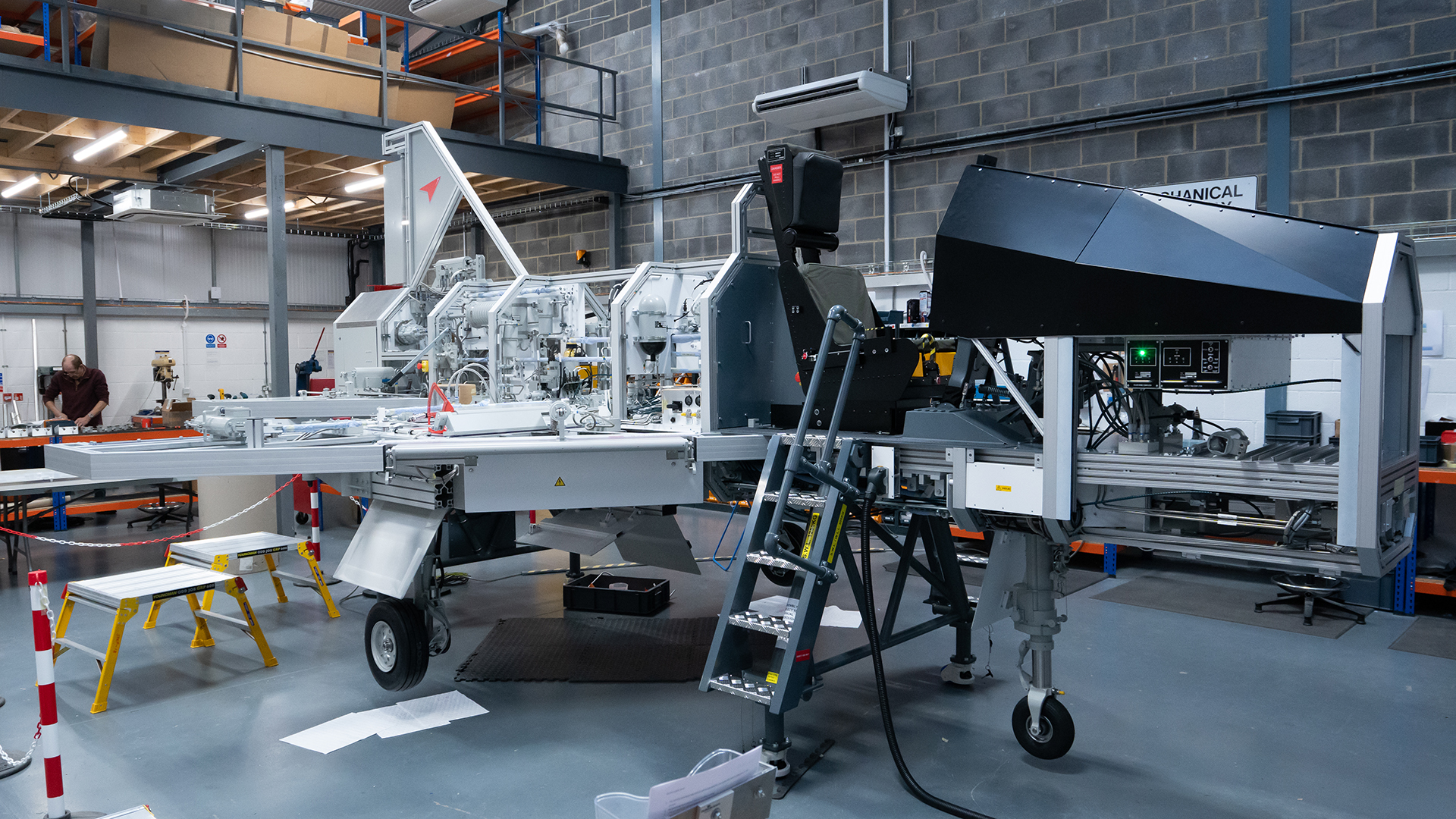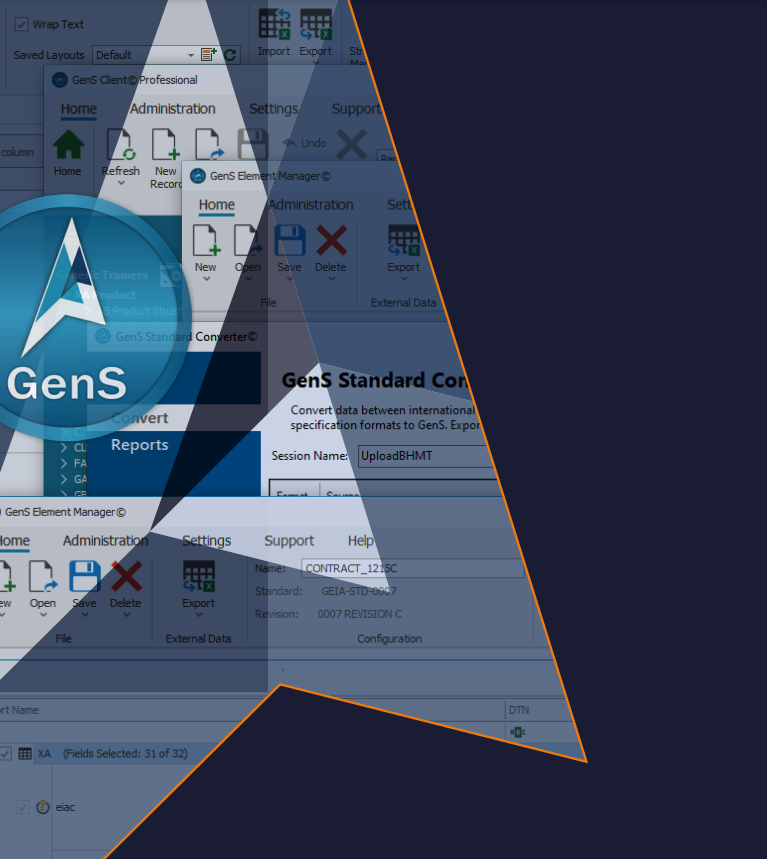Pennant International Group plc (LON:PEN) Chief Executive Officer Phil Walker caught up with DirectorsTalk for an exclusive interview to discuss the key highlights from their interim results, the forecast cash position, the MTE programme and what the next period hold for the Group.
Q1: Phil, Pennant International’s interim results this week show a return to profitability. What are the key highlights of H1 2022?
A1: Well, I’m pleased to report that the Group has returned to profit in the first half of ’22, after what’s been a couple of difficult years. It’s a pleasure to report that we’ve had a positive EBITDA at £0.1 million and in effect, we’ve reversed a loss of £1 million in the period, for the same period last year.
From my perspective, as a Board, we sought to reposition the company as a software and services focused business and we looked to streamline the organisation. The results that have been presented this week demonstrate that this is working and our strategy has been implemented.
Most importantly, I think for me, is our software and services business has grown by 40% in revenue terms to £3.6 million this year in the first half, and now accounts for more than 50% of our revenue. If you look back historically, the software business probably accounted for 20% of our revenue.
The other pleasing point is we’ve now managed to increase our recurring revenue, which now stands at 65%. So as a year a whole, the recurring revenue has grown to almost £9 million of our forecast turnover.
The other side of this is the business mix which obviously moving to a software and services business as opposed to a traditional training and hardware business, the margins have changed. I’m really pleased to share that our margins have doubled to 41% in the first half when you compare that to the same period last year, margins were at 21%.
So, overall, a good set of results.
Q2: Now, the net debt position at the end, worsened to £4.1 million. What’s the forecast cash position and working capital profile over the next period?
A2: That’s a good question. So, cash is obviously very important at the forefront of lots of our shareholders and investors’ mind. Given the stage of completion or the stage of projects we were working on we did expect, and we flagged previously, that the first half the year would be pretty much cash neutral and in fact, the cash is slightly deteriorated. However, we did suggest that the cash would significantly improve in the second half, and this remains the case.
Cash generated from trading over the next period will be significantly improved. At the half year, we had £5 million of trade receivables, and most of that’s expected to unwind in the second half. As a result, if you look at the forecast, which forecast £0.2 million credit balances at year end, we expect all of our debt to be wiped out before the end of the year.
It’s worth flagging though, however, that in prior periods, some customers particularly around year end tend to delay payments and pay early in the following year. Clearly, if that happens again at this year-end, that could have an impact on year end cash position. But all things being equal, we expect to return to cash break even position.
The other point to note is post period end, we announced the sale our headquarters, that was announced a couple of months back, that was sold for £2.1 million. In effect, that net debt of £4.1 million at half year now stands at £2 million, with that proceeds being used to pay down the debt. With the unwinding of the cash balances, we’ll see much improved position.
Looking beyond 2022, into 2023, we expect the business to return to a positive cash balance and be in a much better, healthier cash position into the future.
Q3: There seems to be much speculation and news on the troubled AJAX programme, what’s the Group’s current exposure though?
A3: If you look back to our year end accounts, we took the decision to expose the impact of the MTE contract on the business and financially exposed just how damaged it had been at that point in time.
From the business’ perspective, I’m pleased to say that our contract/our relationship with this is almost completed. As I talk to you today, I can confirm that all four of the training devices have been shipped to the end customer’s premises and all four of the devices have passed factory acceptance. Two of the devices have actually achieved site acceptance as well, which means we have two left to complete and I expect them to be signed off shortly because they are in effect replicas of the first devices. So, it should be relatively straightforward.
In terms of the financial impact on the group, in the first half this year, we’ve traded about £500,000 revenue on this programme and it’s contributed to gross margin loss of about £60,000. Compare and contrast that with the £1.4 million loss last year, clearly the impact is much less so it does continue to impact the group’s gross margins, but much less.
So, as we look into the second half of 2022, there remains about a £100,000 of revenue to trade and we anticipate a small £10,000/£20,000 impact to gross margins. So, the programme is almost over and our exposure is nearly finished.
Q4: Finally, just looking forward, what does the next period hold for Pennant International, do you think?
A4: Looking forward, as per our previous discussion I think a few months back, the global security situation has changed the landscape significantly. We are as a business heavily involved in defence and training, seeing real signs that defence procurement programmes are unlocking in all our region actually, North America, Australasia and the UK with lots of new opportunities coming to the fore and being pursued which is a dramatic shift in the strategic backdrop, which has been very different over the last couple of years.
We continue to see strong growth in our software business so overall the landscape has completely shifted. At the period end, we’ve reported a three-year order book of £27 million which actually £13 million of that is scheduled for delivery next year, which means we’ve got excellent visibility for the next period.
The order book, coupled with our pipeline, I think we’ve disclosed in our RNS, an active pipeline of over £50 million means that the forecast next year, which is a £16 million revenue and EBITDA of £1.7 million are significantly underpinned, which is great news to be sat here now talking about this.
In addition, we continue to invest in our software, we’re trying to scale the business, that’s been an ongoing project to build on the strategy and we’re developing strategic partners and exploring some complimentary acquisitions.
So, the way I would surmise is that, from my perspective, it feels like the business has turned a corner and is poised for a much better period.










































